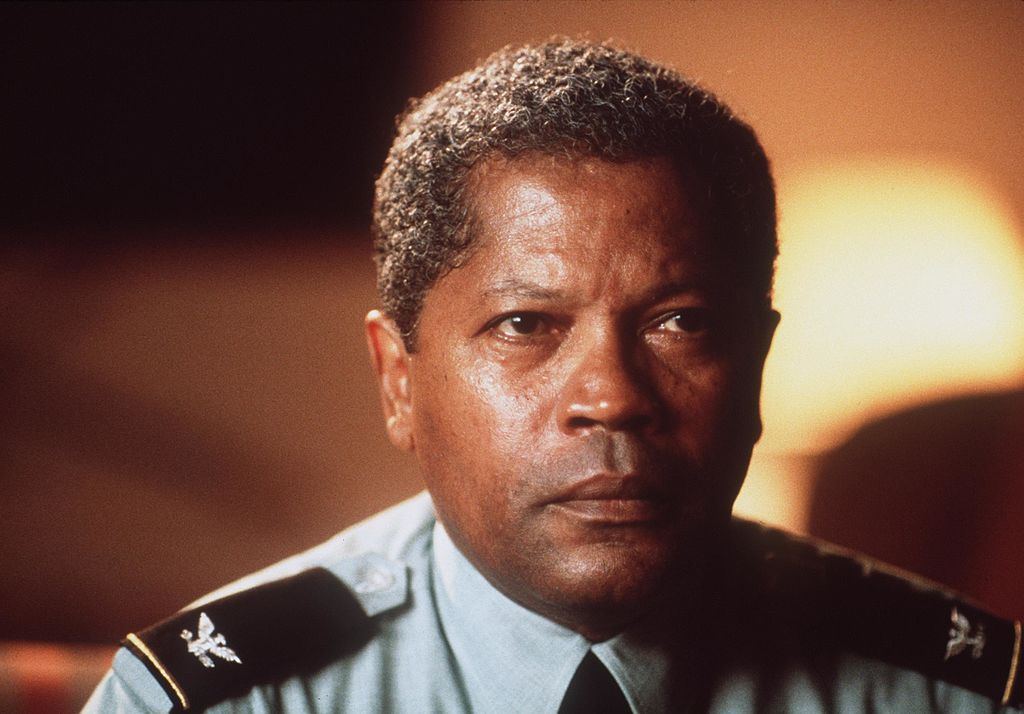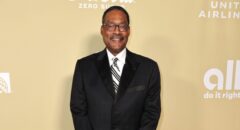
Clarence Williams III, the talented stage, TV and movie actor who broke new ground as “hippie” Detective Linc Hayes on “The Mod Squad” from 1968 to 1973, has died after a battle with colon cancer. He was 81. Williams passed away at his home in Los Angeles, his manager Allan Mindel confirmed in a statement.
Although best known for his TV work in “The Mod Squad,” Williams III also had very memorable roles in a pair of big-screen cult classics: He played Prince’s flawed father — the guy who inspired “When Doves Cry” — in 1984’s “Purple Rain,” and played way against type as flamboyant drug lord Samson Simpson in Dave Chappelle’s cult classic stoner comedy “Half Baked” in 1998. He also played the unforgettable movie character in the cult horror classic, "Tales from the Hood."
Clarence Williams III of course played the funeral director Mr. Simms in 1995 horror anthology, who memorably served as the host of the four terror tales. In the final moments of the movie, it’s revealed that the three characters at the center of the film are actually dead, and Mr. Simms isn’t quite a funeral director but rather Satan himself.
Horror fans may also remember Clarence Williams III from Maniac Cop 2, “Twin Peaks,” and the Maniac at Large episode of “Tales from the Crypt.”
His scene-stealing work left a mark on generations of fans and fellow stars too.
“When I was a kid growing up in NYC, Clarence Williams III was a face on TV that I identified with and that inspired me,” singer-actor Lenny Kravitz, 57, said in homage to the late actor. “From the Mod Squad, to Purple Rain and Sugar Hill, he always performed with dynamic energy. Rest in power, king.”
Born Aug. 21, 1939, in New York City, the veteran talent got his big break on Broadway. He earned a Tony nomination as best featured actor for his stellar work in 1964’s “Slow Dance on the Killing Ground,” launching a career that spanned five decades onstage and in television and film.
Still, it was his ultra-cool counter-culture cop that fans remembered best — and he didn’t mind one bit.
“All most people know about me is the two hours they’ve invested in a movie theater or the time spent in front of their TV,” Williams III said in a 1999 interview, according to the Daily Mail. “There’s so much entertainment out there right now, it’s difficult to break through and become part of the national consciousness. It’s nice to be recognized, and I have no problem with it at all.”
If you think you have been hearing a lot of colon cancer lately, you're right. Ever since late 'Black Panther' star Chadwick Boseman died of colon cancer in his 40's, he shed a new light on this horrible disease. While colorectal cancer isn’t as common in people under the age of 50 like Boseman, as it is in older people, it’s not as uncommon as many people might think. In 2020, about 12% of colorectal cancers – about 18,000 cases – will be diagnosed in people under the age of 50 in the US. What’s more, while rates of colorectal cancer have been falling in older age groups in recent years, they’ve actually been rising among younger people.

Colon Cancer in African Americans
Colorectal cancer also disproportionately affects the Black community, where the rates are the highest of any racial/ethnic group in the US. African Americans are about 20% more likely to get colorectal cancer and about 40% more likely to die from it than most other groups.
The reasons for the differences are complex, but they largely reflect differences in risk factors and in health care access, both of which are related to socioeconomic status. In fact, African Americans are disproportionately burdened by cancer in general. They often experience greater obstacles to cancer prevention, detection, treatment, and survival, including systemic racial disparities that are complex and go beyond the obvious connection to cancer. These obstacles can include lower paying jobs and lack of (or less comprehensive) health insurance, lack of access to healthy and affordable foods, low-quality education and housing, and unsafe environments.
"Colorectal cancer is the second deadliest cancer in the country," said Durado Brooks, M.D. vice president of prevention and early detection at the American Cancer Society. "This disease is ravaging the Black community, and it is as important as ever that everyone has access to and is receiving the recommended screenings. Even during the coronavirus pandemic, necessary screening tests remain available to prevent the disease or find it at an early, more treatable stage."
The Hollywood Reporter notes, “[Williams] is survived by his sister Sondra Pugh, daughter Jamey Phillips, niece Suyin Shaw, grandnephews Elliot Shaw and Ese Shaw, and grandniece Azaria Verdin.”









